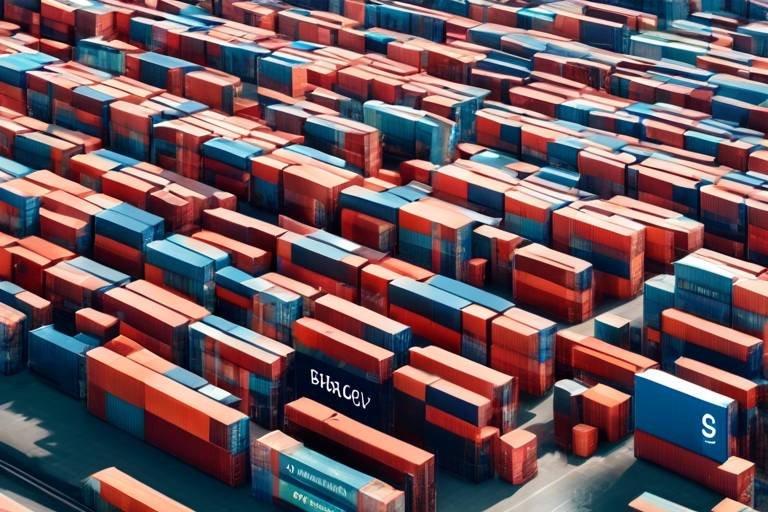How Blockchain Can Enhance Traceability in Logistics
In today's fast-paced world, logistics is the backbone of global trade, ensuring that products are delivered efficiently and safely to consumers. However, with increasing complexity in supply chains, the need for enhanced traceability has never been more crucial. Enter blockchain technology, a game-changer that promises to revolutionize how we track and verify products throughout their journey. Imagine a world where every step of a product's journey—from the moment it leaves the manufacturer to when it arrives at your doorstep—is recorded in an unchangeable digital ledger. This is the power of blockchain, and it’s set to transform logistics like never before.
So, what exactly is blockchain? At its core, blockchain is a decentralized ledger technology that allows multiple parties to access and verify data without the need for a central authority. Each transaction is recorded in a "block" and linked to the previous one, creating a secure chain of information. This ensures that once data is entered, it cannot be altered or deleted, providing a level of transparency and trust that is invaluable in logistics.
But why is traceability so important in logistics? Well, consider this: consumers today are more informed and concerned about where their products come from. They want to ensure that the products they purchase are authentic, safe, and ethically sourced. This is where traceability plays a vital role. It helps businesses comply with regulations, enhances customer trust, and protects brand integrity. Without effective traceability, companies risk losing customers and facing legal repercussions.
However, traditional traceability systems have their challenges. Many logistics operations rely on fragmented data silos, where information is stored in isolated systems. This not only hinders real-time visibility but also makes it difficult to track products accurately. Additionally, the risk of fraud and counterfeit products looms large, threatening both consumer safety and brand reputation. Businesses need robust solutions to overcome these hurdles and ensure seamless operations.
Blockchain technology addresses these issues head-on. By providing a transparent and immutable record of every transaction, it allows all stakeholders in the supply chain to access the same information in real-time. This eliminates data silos and enhances collaboration among partners. Imagine being able to trace a product's journey back to its origin with just a few clicks! This level of visibility not only boosts operational efficiency but also builds consumer confidence.
In the following sections, we will delve deeper into real-world applications of blockchain in logistics, showcasing how companies like Walmart and Maersk are leveraging this technology to enhance traceability and streamline their operations. We'll also explore future trends and the potential for integrating blockchain with other technologies like IoT and AI to further improve supply chain transparency.
- What is blockchain technology? Blockchain is a decentralized digital ledger that records transactions across multiple computers, ensuring that the data cannot be altered retroactively.
- How does blockchain improve traceability in logistics? By providing a transparent and immutable record of transactions, blockchain allows all parties in the supply chain to access real-time information about a product's journey.
- What are the challenges of traditional traceability systems? Traditional systems often suffer from data silos, lack of transparency, and vulnerability to fraud, making it difficult to track products accurately.
- Can blockchain be integrated with other technologies? Yes, blockchain can be integrated with technologies like IoT and AI to enhance data collection and analysis, further improving traceability and efficiency in logistics.

Understanding Blockchain Technology
Blockchain technology is often hailed as a revolutionary force across various industries, and for good reason. At its core, a blockchain is a decentralized digital ledger that securely records transactions across multiple computers. This means that once a transaction is entered into the blockchain, it cannot be altered or deleted, ensuring data integrity and security. Imagine a chain made of blocks, where each block contains a list of transactions. These blocks are linked together in chronological order, creating a permanent and transparent record that everyone involved can trust.
So, how does it work? Each block contains three key components:
- Data: This refers to the actual transaction information, such as the sender, receiver, and amount.
- Hash: Each block has a unique identifier called a hash, which is created using cryptographic algorithms. This hash links it to the previous block, ensuring that any attempt to alter the data would change the hash and break the chain.
- Timestamp: Every block is time-stamped, providing a clear timeline of when the transaction occurred.
One of the most appealing aspects of blockchain technology is its decentralization. Unlike traditional databases that are controlled by a single entity, a blockchain operates on a network of computers (or nodes) that collectively maintain the ledger. This decentralization not only enhances security but also reduces the risk of data breaches and fraud. In a world where data integrity is paramount, blockchain offers a beacon of hope.
Moreover, blockchain operates on consensus mechanisms, which are protocols that consider a transaction valid only when a majority of nodes agree on it. This process can take various forms, such as Proof of Work (PoW) or Proof of Stake (PoS), each with its own strengths and weaknesses. The consensus model ensures that all participants in the network are on the same page, further enhancing trust and transparency.
In the logistics sector, the implications of blockchain technology are profound. By providing an immutable record of transactions, it allows for real-time tracking of goods, reduces the likelihood of errors, and enhances accountability among all parties involved. Picture a scenario where every shipment is logged into a blockchain; stakeholders can access up-to-date information about their products, ensuring that they know exactly where their goods are at any given moment. This level of transparency can significantly improve operational efficiency and customer satisfaction.
As we delve deeper into the world of logistics, it becomes clear that understanding blockchain technology is not just about grasping how it works; it's about recognizing its potential to transform the industry. The ability to trace products from origin to destination with absolute certainty is a game-changer. It empowers businesses to make informed decisions, enhances regulatory compliance, and ultimately fosters greater customer trust.
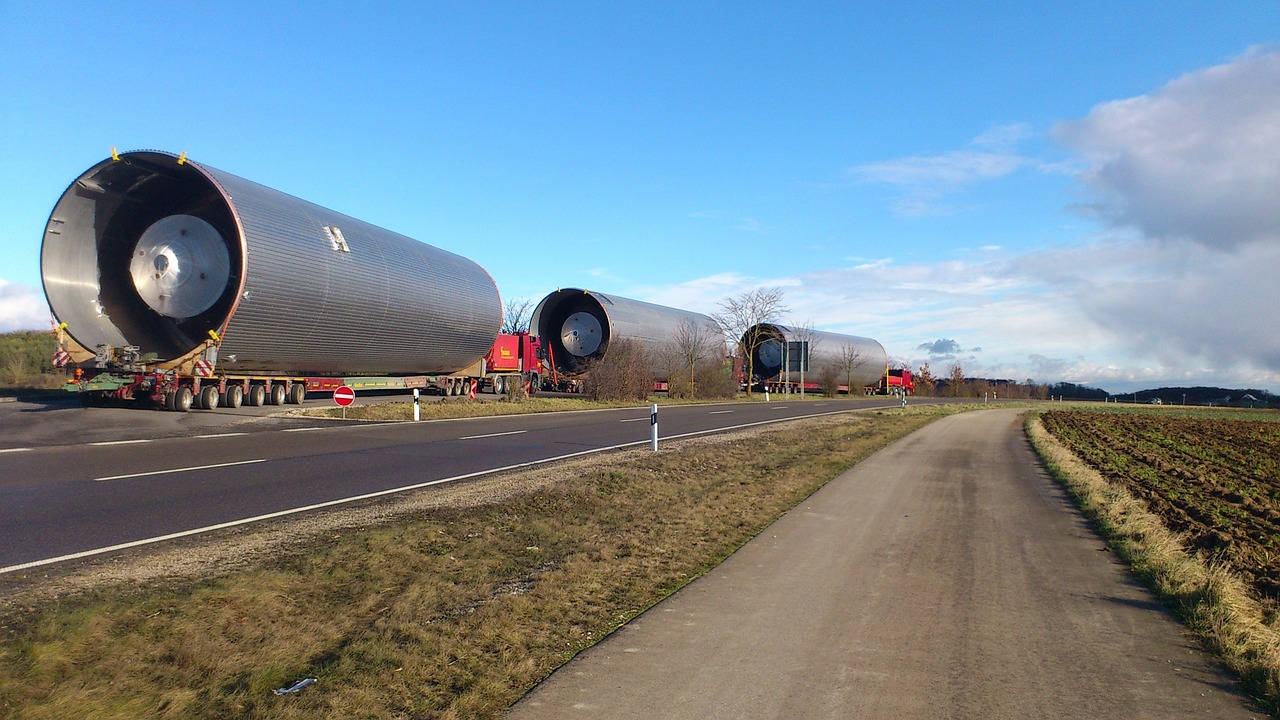
The Importance of Traceability in Logistics
In today's fast-paced world, traceability in logistics is not just a luxury; it's a necessity. Imagine you're a consumer who just bought a delicious organic apple. You want to know where that apple came from, right? Was it grown using sustainable practices? Did it travel through a safe supply chain? This is where traceability comes into play. It ensures that every step of a product's journey is documented, providing a clear path from origin to destination.
Traceability plays a crucial role in ensuring product authenticity. In industries such as food and pharmaceuticals, knowing the source of a product can mean the difference between safety and danger. For example, if a batch of food products is found to be contaminated, traceability allows companies to quickly identify the source and remove affected items from shelves, protecting consumers and maintaining brand integrity. This quick response is vital in preserving customer trust and ensuring compliance with ever-evolving regulations.
Moreover, traceability enhances compliance with regulations. Many industries are subject to strict laws that require detailed records of product origins, handling, and distribution. Failure to comply can lead to hefty fines and damage to a company's reputation. By implementing robust traceability systems, companies can easily demonstrate compliance, which is not only beneficial for legal reasons but also helps in building a positive brand image.
Another significant aspect of traceability is its ability to enhance customer trust. In an era where consumers are increasingly concerned about ethical sourcing and sustainability, being able to provide detailed information about a product's journey can set a brand apart from its competitors. When customers know they can trace a product’s history, they are more likely to feel confident in their purchases. This trust can translate into customer loyalty, which is invaluable for any business.
However, achieving effective traceability is not without its challenges. Traditional methods often suffer from data silos and fragmentation. When information is scattered across various stakeholders, it becomes nearly impossible to get a comprehensive view of the supply chain. This fragmentation can lead to inefficiencies and delays, hindering the ability to respond quickly to issues as they arise.
In addition, the risk of fraud and counterfeit products is ever-present in logistics. Without a reliable traceability system, it's challenging to verify the authenticity of products. This not only affects consumer safety but can also tarnish a brand's reputation. Companies need to invest in solutions that provide a clear, verifiable path for their products to combat these risks effectively.
In conclusion, the importance of traceability in logistics cannot be overstated. It ensures product authenticity, compliance with regulations, and enhances customer trust—all of which are vital for a successful business. As we move forward, embracing innovative technologies like blockchain can significantly improve traceability efforts, paving the way for a more transparent and efficient supply chain.
- What is traceability in logistics? Traceability in logistics refers to the ability to track and trace the history, application, or location of products throughout the supply chain.
- Why is traceability important? It ensures product authenticity, compliance with regulations, and builds customer trust, which are crucial for any business.
- How can blockchain improve traceability? Blockchain offers a transparent and immutable ledger that allows all stakeholders to access verified information about a product's journey.

Challenges in Traditional Traceability Systems
In the fast-paced world of logistics, ensuring that products can be traced from origin to destination is more crucial than ever. However, traditional traceability systems are often riddled with challenges that can compromise efficiency and reliability. One of the primary issues is the existence of data silos, where information is stored separately by different stakeholders. This fragmentation leads to a lack of real-time visibility, making it difficult for companies to monitor their supply chains effectively. Imagine trying to put together a jigsaw puzzle, only to find that several pieces are missing or scattered across different rooms. This is the reality many logistics operations face today.
Moreover, the traditional methods of tracking products are often susceptible to fraud and counterfeit risks. Without a unified and transparent system, it becomes all too easy for bad actors to introduce fake products into the supply chain, jeopardizing not just brand integrity but also consumer safety. Consider the implications of counterfeit pharmaceuticals entering the market; the potential harm to individuals and the loss of trust can be devastating. This is a pressing issue that highlights the urgent need for more robust traceability solutions.
Additionally, traditional traceability systems frequently rely on outdated technologies, which can result in inefficiencies. For instance, many companies still depend on manual record-keeping and paper-based processes. This not only slows down operations but also increases the likelihood of human error. A single mistake in data entry can lead to significant delays and complications in the supply chain, causing a ripple effect that impacts various stakeholders.
To summarize, the challenges faced by traditional traceability systems include:
- Data Silos and Fragmentation: Lack of integrated systems leads to inefficiencies.
- Fraud and Counterfeit Risks: Increased vulnerability without a transparent tracking system.
- Outdated Technologies: Reliance on manual processes results in errors and delays.
As we delve deeper into how blockchain technology can address these challenges, it becomes clear that the logistics industry stands on the brink of a transformative shift. By embracing innovative solutions, businesses can enhance their traceability efforts and ultimately improve their operational efficiency.
- What is traceability in logistics? Traceability in logistics refers to the ability to track and trace the movement of products throughout the supply chain.
- How does blockchain improve traceability? Blockchain provides a transparent and immutable record of transactions, allowing all stakeholders to access real-time data and reduce the risk of fraud.
- What are the benefits of enhanced traceability? Enhanced traceability leads to improved compliance with regulations, increased customer trust, and better overall supply chain performance.

Data Silos and Fragmentation
In the intricate world of logistics, the concept of data silos and fragmentation poses a significant challenge. Imagine a jigsaw puzzle where each piece represents a different stakeholder in the supply chain—manufacturers, suppliers, transporters, and retailers. When these pieces don’t connect, you end up with a chaotic picture that lacks clarity and coherence. This fragmentation leads to inefficiencies that can ripple through the entire logistics network.
Data silos occur when information is isolated within different departments or organizations, creating barriers to communication and collaboration. For instance, a manufacturer may have detailed production data, while a distributor holds shipping information, and neither party can access the other’s insights. This lack of visibility can result in:
- Delayed Decision-Making: Without real-time access to data, stakeholders struggle to make informed decisions promptly.
- Increased Operational Costs: Inefficiencies in communication can lead to duplicated efforts and wasted resources.
- Inability to Track Products: When data is fragmented, tracking a product’s journey through the supply chain becomes a daunting task, often leading to delays and errors.
Moreover, this fragmentation can stifle innovation. When organizations operate in isolation, they miss out on opportunities to leverage collective insights and improve processes. For example, if a retailer is unaware of a supplier's production delays due to siloed information, they may overpromise delivery dates to customers, leading to dissatisfaction and a tarnished reputation.
To illustrate the impact of data silos, consider a scenario where a perishable item, such as fresh produce, is involved. If the shipment is delayed due to lack of communication between the supplier and the transporter, the product may spoil before it reaches the retailer. This not only results in financial losses but also affects customer trust and brand loyalty. Therefore, overcoming data silos is essential for enhancing traceability and ensuring smooth logistics operations.
In conclusion, addressing data silos and fragmentation is crucial for achieving a seamless logistics process. By fostering collaboration and ensuring that all stakeholders have access to the same information, businesses can enhance their operational efficiency and maintain a competitive edge in the market. The integration of blockchain technology can play a pivotal role in breaking down these silos, providing a unified platform for all parties involved in the supply chain.

Fraud and Counterfeit Risks
In today's global marketplace, the threat of fraud and counterfeit products looms large, particularly in the logistics sector. Imagine receiving a shipment of luxury watches, only to discover that they are mere replicas instead of the genuine articles you expected. This scenario is not just a nightmare for consumers but also a significant risk for businesses. The impact of counterfeit goods can be devastating, leading to financial losses, legal battles, and a tarnished reputation. But what exactly contributes to these risks in logistics?
One of the primary culprits is the lack of transparency in traditional supply chains. When products move through multiple hands—from manufacturers to distributors to retailers—each stakeholder often operates within their own data silo. This fragmentation makes it incredibly difficult to trace the origin of a product or verify its authenticity. For instance, if a counterfeit product enters the supply chain, it can be nearly impossible to pinpoint where it originated, which complicates efforts to address the issue.
Moreover, the logistics industry often relies on outdated methods for tracking goods. Many companies still use paper-based documentation or legacy systems that are prone to human error. This not only increases the chances of fraudulent activities but also makes it easier for counterfeit products to slip through the cracks. In fact, a recent study found that nearly 30% of companies reported experiencing issues related to counterfeit goods, which underscores the need for more robust solutions.
Another factor contributing to these risks is the global nature of supply chains. With products crossing international borders, the potential for fraud increases exponentially. Different countries have varying regulations and standards, making it challenging to maintain consistent quality control. As a result, counterfeiters may exploit these gaps, leading to unsafe products entering the market.
To combat these challenges, businesses must adopt innovative solutions that enhance traceability. Implementing blockchain technology can provide a game-changing approach to tackling fraud and counterfeit risks. By creating a decentralized and immutable record of every transaction, blockchain allows all stakeholders to verify the authenticity of products at every stage of the supply chain. This transparency not only protects consumers but also helps businesses maintain their brand integrity and build trust with their customers.
In conclusion, the risks of fraud and counterfeit products in logistics are significant and multifaceted. However, by leveraging technologies like blockchain, companies can enhance traceability and create a more secure and trustworthy supply chain. As we move forward, it's crucial for businesses to stay vigilant and proactive in addressing these risks, ensuring that they not only protect their bottom line but also safeguard their customers.

How Blockchain Addresses Traceability Issues
In today’s fast-paced logistics landscape, traditional traceability methods often fall short, leading to a myriad of challenges such as lack of transparency and data fragmentation. Enter blockchain technology, a game-changer that addresses these issues head-on. By utilizing a decentralized ledger system, blockchain enhances traceability in logistics, offering a solution that is not just effective but also revolutionary.
One of the most compelling features of blockchain is its immutability. Once information is recorded on the blockchain, it cannot be altered or deleted. This characteristic ensures that every transaction and movement of goods is permanently documented, creating a transparent and reliable history of the product's journey. Imagine if every step your package took—from the manufacturer to the retailer—was recorded in a way that no one could tamper with. This level of security fosters trust among all parties involved, from suppliers to consumers.
Moreover, blockchain technology enables real-time tracking of goods throughout the supply chain. Unlike traditional systems where data is often siloed and fragmented, blockchain allows all stakeholders to access the same information simultaneously. This means that if a shipment is delayed or a product is recalled, everyone in the supply chain is immediately informed, allowing for swift action. The ability to trace products in real-time can significantly reduce response times in critical situations, enhancing overall operational efficiency.
Another significant advantage of blockchain is its ability to combat fraud and counterfeiting. In an era where counterfeit products can easily infiltrate the market, having a robust traceability system is crucial. Blockchain provides a secure method to verify the authenticity of products, as each item can be linked to its origin and every transaction can be tracked. For instance, a luxury brand can ensure that its products are not only genuine but also ethically sourced by tracing them back to their origins. This level of transparency not only protects brand integrity but also enhances consumer safety.
To illustrate how blockchain can transform traceability in logistics, consider the following table that summarizes its key benefits:
| Benefit | Description |
|---|---|
| Immutability | Ensures that all records are permanent and tamper-proof, providing a trustworthy history of product movements. |
| Real-time Tracking | Allows stakeholders to access up-to-date information, enabling quick responses to issues like delays or recalls. |
| Fraud Prevention | Enhances product verification, protecting against counterfeiting and ensuring consumer safety. |
In summary, blockchain technology not only addresses the shortcomings of traditional traceability systems but also sets a new standard for transparency and efficiency in logistics. By providing a secure, immutable, and real-time tracking solution, blockchain empowers businesses to enhance their supply chain operations, ultimately leading to better customer satisfaction and trust.
- What is blockchain technology?
Blockchain is a decentralized digital ledger that records transactions across many computers in such a way that the registered transactions cannot be altered retroactively.
- How does blockchain improve traceability?
Blockchain improves traceability by creating an immutable record of every transaction, allowing stakeholders to track the movement of goods in real-time.
- Can blockchain prevent fraud?
Yes, blockchain can significantly reduce fraud by providing a secure method to verify the authenticity of products and ensuring that all transactions are transparent and traceable.
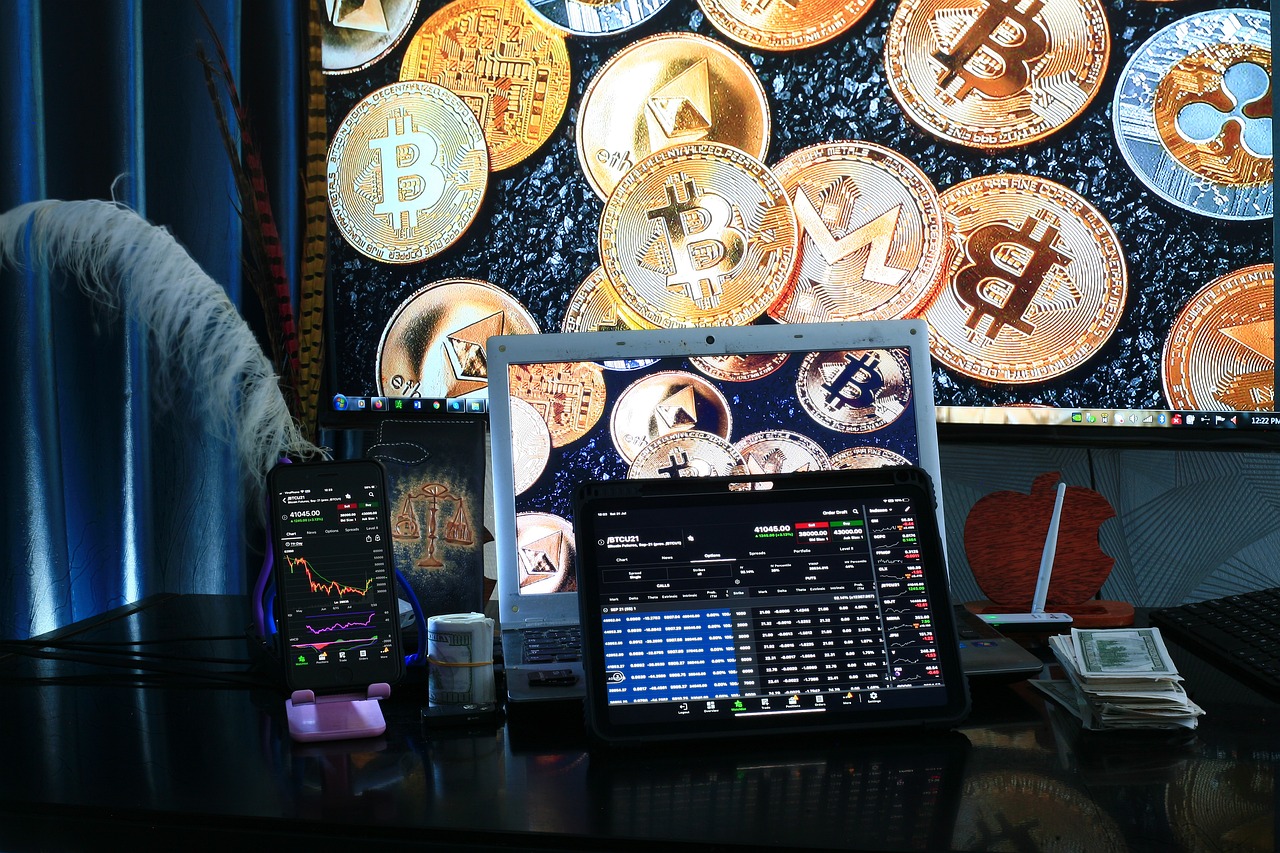
Real-World Applications of Blockchain in Logistics
Blockchain technology is not just a buzzword; it’s a game-changer for the logistics industry. By integrating blockchain into logistics operations, companies are discovering new levels of efficiency, transparency, and reliability. One of the most compelling aspects of blockchain is its ability to create a single source of truth for all parties involved in the supply chain. This means that every transaction, shipment, and change in custody is recorded on a decentralized ledger that is accessible to all stakeholders. Imagine a world where you can trace the journey of a product from its origin to its final destination in real-time. This is not just a dream; it’s rapidly becoming a reality thanks to blockchain.
Take Walmart, for example. The retail giant has implemented blockchain technology to enhance food safety. By using a blockchain system, Walmart can quickly trace the origin of its food products. This means that in the event of a food safety issue, the company can pinpoint the source of contamination within seconds, rather than weeks. This level of traceability not only protects consumers but also helps Walmart maintain its reputation as a trusted retailer. The ability to track food items from farm to store ensures that every stakeholder in the supply chain is accountable, fostering an environment of trust and reliability.
Another noteworthy example is Maersk, a leader in shipping and logistics. Maersk has embraced blockchain to streamline its shipping processes, significantly reducing the paperwork that typically bogs down logistics operations. By digitizing shipping documents and recording them on a blockchain, Maersk has improved visibility across its logistics network. This innovation has led to faster shipping times, reduced costs, and enhanced customer satisfaction. Imagine not having to wade through mountains of paperwork just to track a shipment; that’s the power of blockchain!
Furthermore, blockchain’s decentralized nature minimizes the risk of fraud and errors. In traditional logistics systems, data is often siloed within different organizations, leading to discrepancies and a lack of transparency. However, with blockchain, every participant in the supply chain has access to the same information, ensuring that everyone is on the same page. This shared visibility not only reduces disputes but also enhances collaboration among partners, leading to a more streamlined and efficient supply chain.
As we look ahead, the potential applications of blockchain in logistics are vast. Companies are exploring ways to integrate blockchain with other emerging technologies such as IoT (Internet of Things) and AI (Artificial Intelligence). For instance, IoT devices can provide real-time data about the condition and location of goods, which can then be recorded on a blockchain. This integration can enhance traceability even further, allowing stakeholders to monitor the entire lifecycle of a product.
In summary, the real-world applications of blockchain in logistics are already making waves, transforming how businesses operate. From improving food safety at Walmart to streamlining shipping for Maersk, the benefits of blockchain are clear. As more companies adopt this technology, we can expect to see even more innovative solutions that enhance traceability, reduce costs, and improve overall operational efficiency.
Q: How does blockchain improve traceability in logistics?
A: Blockchain enhances traceability by providing a decentralized ledger that records every transaction and movement of goods in real-time, ensuring that all stakeholders have access to the same information.
Q: Can blockchain help reduce fraud in logistics?
A: Yes, blockchain minimizes fraud risk by creating an immutable record of transactions, making it difficult for unauthorized changes or discrepancies to occur.
Q: What are some challenges of implementing blockchain in logistics?
A: Challenges include the need for industry-wide collaboration, integration with existing systems, and the initial investment in technology and training.
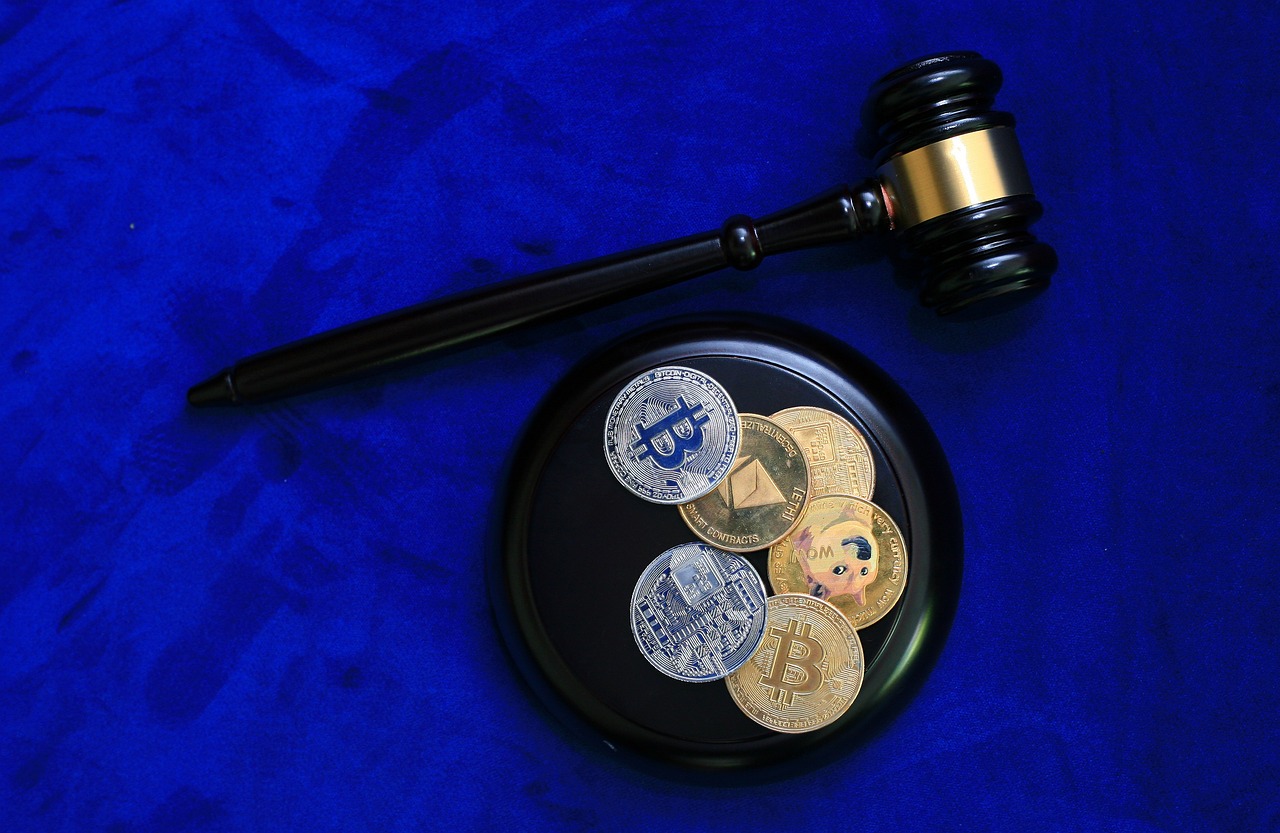
Case Study: Walmart and Food Safety
Walmart, one of the largest retailers in the world, has taken a bold step into the future by implementing blockchain technology to enhance food safety. Imagine a world where every single item on the grocery shelf can be traced back to its origin in seconds. This isn’t just a dream; it’s a reality that Walmart is creating through its innovative use of blockchain. By utilizing this technology, Walmart has transformed its supply chain into a transparent, efficient, and responsive system, ensuring that food products are safe and authentic.
In 2016, Walmart began experimenting with blockchain to improve traceability in its food supply chain. The primary goal was to enhance food safety and reduce the risk of contamination. With traditional traceability methods, tracing the origin of food products could take days or even weeks. However, with blockchain, Walmart can now trace the journey of food items in a matter of seconds. This rapid traceability is crucial in the event of a food safety scare, allowing the company to quickly identify and remove contaminated products from its shelves.
To illustrate the effectiveness of this system, let’s look at a real-world example. In 2017, there was an outbreak of E. coli linked to romaine lettuce. Thanks to Walmart’s blockchain implementation, the company was able to trace the source of the contaminated lettuce back to the farm in just 2.2 seconds. In contrast, traditional methods would have taken over six days. This swift action not only protected consumers but also helped maintain Walmart's reputation as a trusted retailer.
Walmart’s blockchain system operates on a decentralized ledger that records every transaction and movement of food products. Each participant in the supply chain, from farmers to suppliers to retailers, has access to this shared ledger, which ensures that everyone is on the same page. This transparency is key to preventing fraud and ensuring that products are sourced ethically and sustainably.
Furthermore, Walmart has partnered with IBM to develop the Food Trust blockchain network. This collaboration has allowed for greater scalability and integration with other systems, enhancing the overall efficiency of the supply chain. The network not only benefits Walmart but also other retailers and suppliers who choose to participate, creating a more robust and secure food supply chain.
With the implementation of blockchain technology, Walmart has not only improved food safety but has also gained a competitive edge in the market. The ability to provide customers with detailed information about the origin of their food products fosters trust and loyalty. In an age where consumers are increasingly concerned about food safety and sourcing, this level of transparency is invaluable.
In conclusion, Walmart's use of blockchain technology for food safety is a perfect example of how innovation can lead to significant improvements in traceability and efficiency within the logistics sector. As more companies recognize the benefits of blockchain, we can expect to see a broader adoption of this technology, ultimately leading to safer and more transparent food supply chains.
- What is blockchain technology? Blockchain is a decentralized digital ledger that records transactions across many computers, ensuring that the recorded data cannot be altered retroactively.
- How does blockchain enhance traceability? By providing a transparent and immutable record of each transaction, blockchain allows stakeholders to trace the entire journey of a product through the supply chain.
- What are the benefits of Walmart using blockchain for food safety? The benefits include rapid traceability, increased transparency, reduced risk of fraud, and enhanced customer trust in food products.
- Can other companies implement similar blockchain solutions? Yes, many companies across various industries are adopting blockchain technology to improve traceability and operational efficiency.
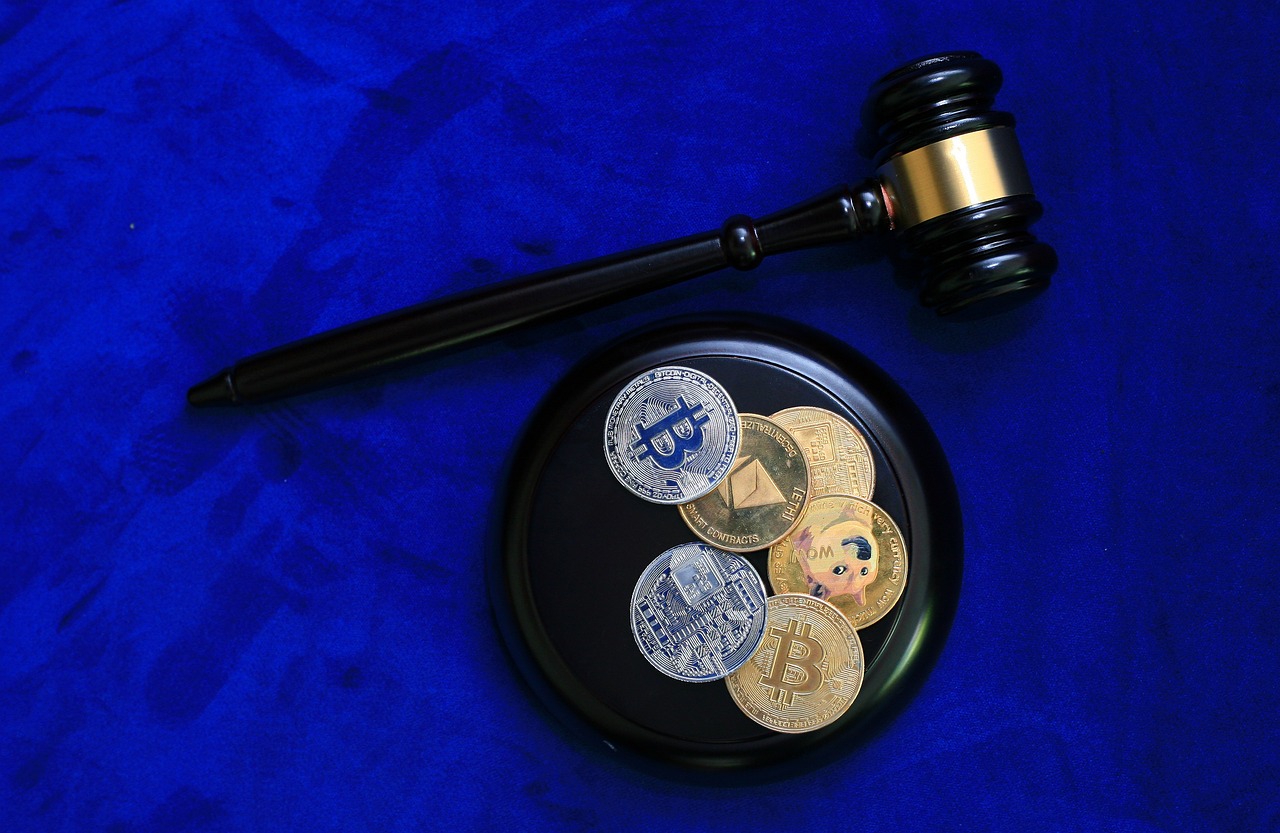
Case Study: Maersk and Shipping
Maersk, one of the largest shipping companies in the world, has embraced blockchain technology to revolutionize its logistics operations. The company recognized that traditional shipping processes were bogged down by inefficiencies, excessive paperwork, and a lack of transparency. To combat these issues, Maersk partnered with IBM to develop a blockchain-based platform known as TradeLens. This innovative solution aims to streamline the shipping process by providing real-time visibility and traceability throughout the entire supply chain.
With TradeLens, Maersk has created a decentralized network that connects various stakeholders, including shipping lines, port operators, customs authorities, and freight forwarders. By utilizing blockchain, all participants can access a single, immutable version of the truth regarding shipments. This transparency not only reduces the chances of disputes but also accelerates the decision-making process, ultimately leading to enhanced efficiency.
One of the standout features of the TradeLens platform is its ability to digitize shipping documents, which have historically been a source of delays and errors. Previously, the exchange of documents like bills of lading and customs declarations could take days or even weeks. Now, with blockchain, these documents are securely shared in real-time, significantly speeding up operations. For instance, a shipment that once took several days to clear customs can now be processed in a matter of hours.
Moreover, the platform's ability to capture data from IoT devices means that Maersk can monitor the condition of cargo in real-time. This capability is particularly crucial for sensitive goods that require specific temperature ranges, such as pharmaceuticals and perishables. If any anomalies are detected, stakeholders can be alerted immediately, allowing for swift corrective actions to be taken.
To further illustrate the impact of blockchain on Maersk's operations, consider the following benefits:
- Increased Transparency: Every transaction is recorded on the blockchain, providing all parties with access to the same information.
- Reduced Costs: By eliminating paperwork and streamlining processes, Maersk has significantly reduced operational costs.
- Improved Customer Satisfaction: With faster processing times and real-time updates, customers experience enhanced service levels.
Maersk's blockchain initiative has not only transformed its internal processes but has also set a precedent for the entire shipping industry. By demonstrating the effectiveness of blockchain in logistics, Maersk encourages other companies to adopt similar technologies, fostering a more efficient and transparent global supply chain.
1. What is TradeLens?
TradeLens is a blockchain-based platform developed by Maersk and IBM to enhance transparency and efficiency in the shipping industry by connecting various stakeholders on a single network.
2. How does blockchain improve shipping processes?
Blockchain improves shipping processes by providing real-time visibility, reducing paperwork, and ensuring that all parties have access to the same immutable data, which helps in faster decision-making.
3. What are the benefits of using blockchain in logistics?
The benefits include increased transparency, reduced costs, improved customer satisfaction, and enhanced security against fraud.
4. Can blockchain technology help with tracking sensitive cargo?
Yes, blockchain technology can integrate with IoT devices to monitor the condition of sensitive cargo in real-time, ensuring it remains within required parameters.

Future Trends in Blockchain and Logistics
As we look ahead, the intersection of blockchain technology and logistics is poised for remarkable evolution. With the continual advancement of digital technologies, the future promises a landscape where transparency, efficiency, and security are not just goals but standard practices. One of the most exciting trends is the integration of blockchain with the Internet of Things (IoT). Imagine a scenario where every product in the supply chain is equipped with sensors that communicate real-time data to a blockchain network. This synergy could provide unparalleled visibility, allowing stakeholders to monitor conditions such as temperature, humidity, and location, ensuring that goods are transported under optimal conditions.
Furthermore, the incorporation of Artificial Intelligence (AI) into blockchain logistics systems is another trend gaining momentum. AI can analyze vast amounts of data generated by blockchain networks to predict demand, optimize routes, and even detect anomalies that may indicate fraud or inefficiencies. This fusion of AI and blockchain could lead to smarter supply chains that not only respond to current conditions but also anticipate future challenges.
Another significant trend is the shift towards collaborative logistics. As businesses recognize the benefits of sharing information and resources, blockchain can facilitate secure and transparent collaboration among various stakeholders. This could lead to reduced costs and improved service levels, as companies can jointly manage inventory and logistics operations while maintaining the confidentiality of their proprietary data. The decentralized nature of blockchain ensures that all parties have access to the same information, significantly enhancing trust among participants.
Moreover, regulatory compliance is becoming increasingly complex in global logistics. The future will likely see blockchain playing a crucial role in automating compliance processes through smart contracts. These self-executing contracts can automatically verify adherence to regulations, reducing the burden on companies and minimizing the risk of non-compliance. This not only streamlines operations but also enhances accountability and transparency across the supply chain.
In addition to these technological advancements, we can expect to see a growing emphasis on sustainability within blockchain logistics. As consumers become more environmentally conscious, companies are under pressure to demonstrate their commitment to sustainable practices. Blockchain can provide a transparent record of a product's journey, allowing consumers to verify claims regarding sustainability and ethical sourcing. This level of transparency can foster greater trust and loyalty among customers, ultimately benefiting brands that prioritize sustainability.
In conclusion, the future of blockchain in logistics is bright and full of potential. As technology evolves, so too will the capabilities of blockchain to enhance traceability, efficiency, and trust within the supply chain. Companies that embrace these trends and adapt to the changing landscape will not only improve their operational processes but also position themselves as leaders in a competitive market.
- What is blockchain technology?
Blockchain is a decentralized digital ledger that securely records transactions across multiple computers, ensuring data integrity and transparency.
- How does blockchain improve traceability in logistics?
By providing a transparent and immutable record of each step in the supply chain, blockchain enhances visibility and accountability, reducing fraud and errors.
- Can blockchain be integrated with other technologies?
Yes, blockchain can be integrated with IoT and AI to create smarter, more efficient logistics systems that enhance real-time monitoring and data analysis.
- What are smart contracts?
Smart contracts are self-executing contracts with the terms of the agreement directly written into code, allowing for automated compliance and transaction execution.
- How can blockchain support sustainability in logistics?
Blockchain provides a transparent record of products' journeys, allowing consumers to verify sustainability claims and fostering trust in brands committed to ethical practices.
Frequently Asked Questions
- What is blockchain technology?
Blockchain technology is a decentralized digital ledger that records transactions across many computers. This ensures that the recorded transactions cannot be altered retroactively, providing a high level of security and transparency. Think of it like a digital notebook that everyone can see but no one can erase!
- How does blockchain improve traceability in logistics?
Blockchain enhances traceability by providing a transparent and immutable record of every transaction in the supply chain. This means that every product can be tracked from its origin to its final destination, reducing the risk of fraud and ensuring compliance with regulations.
- What are the main challenges of traditional traceability systems?
Traditional traceability systems often suffer from data silos, lack of transparency, and are prone to fraud. These issues can lead to inefficiencies and make it difficult for businesses to react quickly to problems in the supply chain.
- Can blockchain help with food safety?
Absolutely! Companies like Walmart have successfully implemented blockchain to track food products from farm to store. This allows for rapid response in case of food safety issues, ensuring that contaminated products can be quickly identified and removed from shelves.
- What are some real-world applications of blockchain in logistics?
Real-world applications include Walmart's food safety initiative and Maersk's blockchain project to streamline shipping processes. These implementations have shown significant improvements in traceability, cost reduction, and overall operational efficiency.
- What future trends can we expect in blockchain and logistics?
Future trends may include greater integration of blockchain with Internet of Things (IoT) devices and Artificial Intelligence (AI). This combination could further enhance real-time tracking and decision-making processes in logistics.

